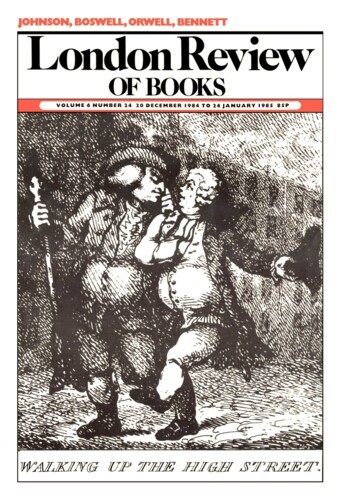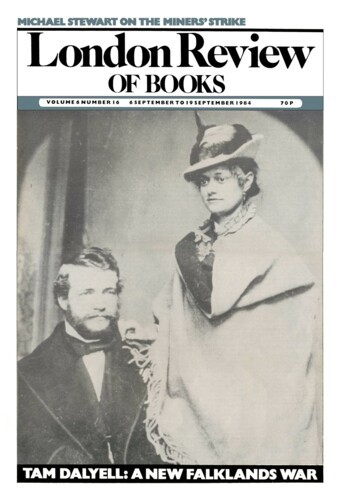1966 and all that
Michael Stewart, 20 December 1984
There are, one might venture to suggest, two kinds of people: those whose New Year resolution to keep a diary peters out on 5 January, and those who are still hard at it on 31 December. We are surely fortunate that Barbara Castle – like the late Dick Crossman – is in the second category. And when Mrs Castle keeps a diary, she doesn’t mess about: she really keeps a diary. The indefatigability of her labours was first revealed four years ago, when she published her diaries for the period from 1 January 1974 to 13 April 1976, the latter date being five days after her old enemy and new Prime Minister James Callaghan unceremoniously sacked her. Those two years and 104 days took over four hundred thousand words to chronicle – an average of around five hundred words a day; but since some days apparently only merited a few lines and others none at all, this means that it was not uncommon for a day to receive a thousand or even fifteen hundred words of description. In a way this is fair enough, since few people are as busy as a conscientious Cabinet Minister, and there is plenty to record. All the same, the mind boggles at the amount of time and energy that Mrs Castle must have spent in jotting down in shorthand what had happened during the past few hours, and then transcribing it all on her faithful old Olivetti typewriter in the small hours of the morning or at weekends.


